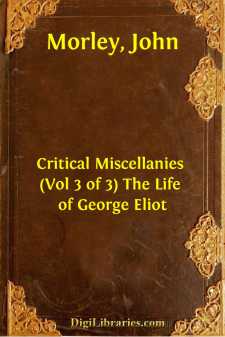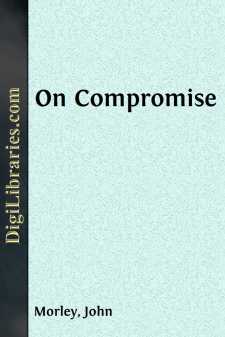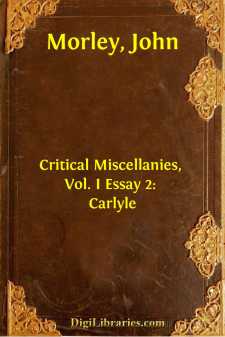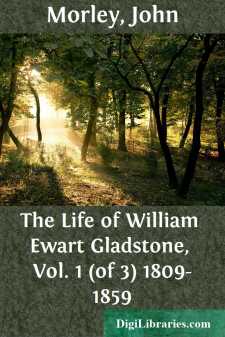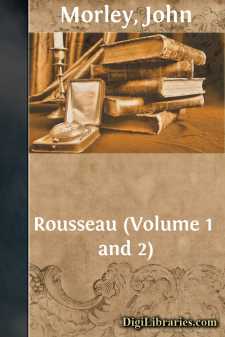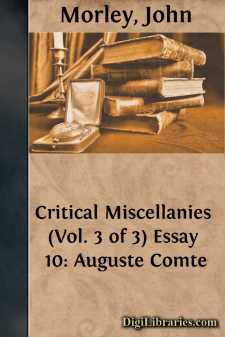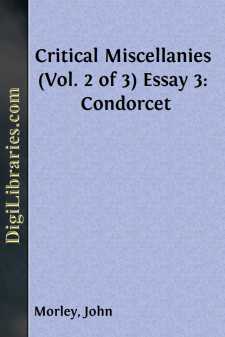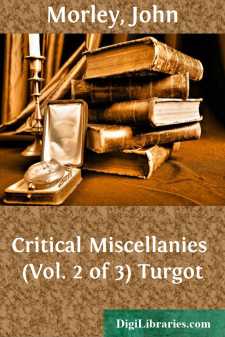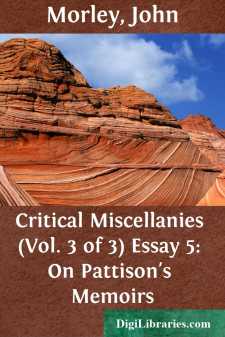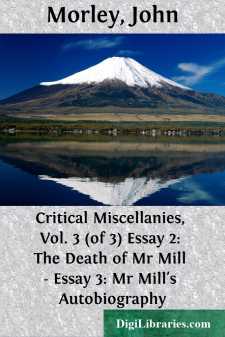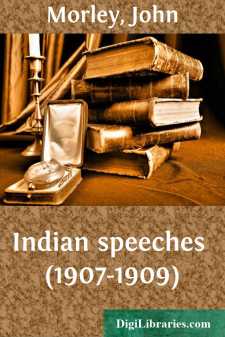Categories
- Antiques & Collectibles 13
- Architecture 36
- Art 48
- Bibles 22
- Biography & Autobiography 813
- Body, Mind & Spirit 141
- Business & Economics 28
- Children's Books 12
- Children's Fiction 9
- Computers 4
- Cooking 94
- Crafts & Hobbies 4
- Drama 346
- Education 46
- Family & Relationships 57
- Fiction 11826
- Games 19
- Gardening 17
- Health & Fitness 34
- History 1377
- House & Home 1
- Humor 147
- Juvenile Fiction 1873
- Juvenile Nonfiction 202
- Language Arts & Disciplines 88
- Law 16
- Literary Collections 686
- Literary Criticism 179
- Mathematics 13
- Medical 41
- Music 40
- Nature 179
- Non-Classifiable 1768
- Performing Arts 7
- Periodicals 1453
- Philosophy 64
- Photography 2
- Poetry 896
- Political Science 203
- Psychology 42
- Reference 154
- Religion 513
- Science 126
- Self-Help 83
- Social Science 81
- Sports & Recreation 34
- Study Aids 3
- Technology & Engineering 59
- Transportation 23
- Travel 463
- True Crime 29
Critical Miscellanies (Vol 3 of 3) The Life of George Eliot
by: John Morley
Categories:
Description:
Excerpt
THE LIFE OF GEORGE ELIOT.
The illustrious woman who is the subject of these volumes makes a remark to her publisher which is at least as relevant now as it was then. Can nothing be done, she asks, by dispassionate criticism towards the reform of our national habits in the matter of literary biography? 'Is it anything short of odious that as soon as a man is dead his desk should be raked, and every insignificant memorandum which he never meant for the public be printed for the gossiping amusement of people too idle to reread his books?' Autobiography, she says, at least saves a man or a woman that the world is curious about, from the publication of a string of mistakes called Memoirs. Even to autobiography, however, she confesses her deep repugnance unless it can be written so as to involve neither self-glorification nor impeachment of others—a condition, by the way, with which hardly any, save Mill's, can be said to comply. 'I like,' she proceeds, 'that He being dead yet speaketh should have quite another meaning than that' (iii. 226, 297, 307). She shows the same fastidious apprehension still more clearly in another way. 'I have destroyed almost all my friends' letters to me,' she says, 'because they were only intended for my eyes, and could only fall into the hands of persons who knew little of the writers if I allowed them to remain till after my death. In proportion as I love every form of piety—which is venerating love—I hate hard curiosity; and, unhappily, my experience has impressed me with the sense that hard curiosity is the more common temper of mind' (ii. 286). There is probably little difference among us in respect of such experience as that.
George Eliot's Life. By J.W. Cross. Three volumes. Blackwood and Sons. 1885.
Much biography, perhaps we might say most, is hardly above the level of that 'personal talk,' to which Wordsworth sagely preferred long barren silence, the flapping of the flame of his cottage fire, and the under-song of the kettle on the hob. It would not, then, have much surprised us if George Eliot had insisted that her works should remain the only commemoration of her life. There be some who think that those who have enriched the world with great thoughts and fine creations, might best be content to rest unmarked 'where heaves the turf in many a mouldering heap,' leaving as little work to the literary executor, except of the purely crematory sort, as did Aristotle, Plato, Shakespeare, and some others whose names the world will not willingly let die. But this is a stoic's doctrine; the objector may easily retort that if it had been sternly acted on, we should have known very very little about Dr. Johnson, and nothing about Socrates.
This is but an ungracious prelude to some remarks upon a book, which must be pronounced a striking success. There will be very little dispute as to the fact that the editor of these memorials of George Eliot has done his work with excellent taste, judgment, and sense. He found no autobiography nor fragment of one, but he has skilfully shaped a kind of autobiography by a plan which, so far as we know, he is justified in calling new, and which leaves her life to write itself in extracts from her letters and journals....


